No products in the cart.
Comirnaty covid-19 mrna vaccine
$130.00
Dosage Forms & Strengths
injection, suspension
- 10 single dose of 0.3mL per single-dose vial or prefilled syringe
COVID-19 Disease Prevention
Indicated for active immunization to prevent COVID-19 disease caused by SARS-CoV-2 in individuals aged ≥12 years
0.3 mL IM as a single dose
If previously vaccinated with any COVID-19 vaccine, administer at least 2 months after last vaccine dose
What COMIRNATY is and what it is used for
COMIRNATY is a vaccine used for preventing COVID-19 caused by SARS-CoV-2 virus. The vaccine causes the immune system (the body’s natural defences) to produce antibodies and blood cells that work against the virus, so giving protection against COVID-19.
As COMIRNATY does not contain the virus to produce immunity, it cannot give you COVID-19
What you need to know before you receive COMIRNATY
COMIRNATY should not be given
if you are allergic to the active substance or any of the other ingredients of this medicine
Warnings and precautions
Talk to your doctor, pharmacist or nurse before you are given the vaccine if:
you have ever had a severe allergic reaction or breathing problems after any other vaccine
injection or after you were given COMIRNATY in the past
- you have had myocarditis (inflammation of the heart muscle) or pericarditis (inflammation of the lining outside the heart).
- you are feeling nervous about the vaccination process or have ever fainted following any needle injection.
- you have a fever.
- you have a bleeding problem, you bruise easily or you use a medicine to prevent blood-clots.
- you have a weakened immune system, because of a disease such as HIV infection or a medicine such as corticosteroid that affects your immune system.
- you have received another COVID-19 vaccine.
There is a remote chance that COMIRNATY could cause a severe allergic reaction. A severe allergic reaction would usually occur within a few minutes to one hour after getting a dose of COMIRNATY. For this reason, your vaccination provider may ask you to stay at the place where you received your vaccine for monitoring after vaccination. Signs of a severe allergic reaction can include:
- Difficulty breathing
- Swelling of your face and throat
- A fast heartbeat
- A bad rash all over your body
- Dizziness and weakness
Myocarditis (inflammation of the heart muscle) and pericarditis (inflammation of the lining outside the heart) have occurred in some people who have received COMIRNATY. In most of these people, symptoms began within a few days following receipt of the second dose of COMIRNATY. The risk of myocarditis and pericarditis seems lower in children ages 5 through <12 years compared with ages 12 to 17 years. The chance of having this occur is very low. You should avoid strenuous physical activity for two weeks after vaccination. You should seek medical attention right away if you have any of the following symptoms after receiving COMIRNATY:
- Chest pain
- Shortness of breath
- Feelings of having a fast-beating, fluttering, or pounding heart
As with any vaccine, COMIRNATY may not fully protect all those who receive it and it is not known how long you will be protected.
Children
COMIRNATY is not recommended for infants aged under 6 months.
Other medicines and COMIRNATY
Tell your doctor or pharmacist if you are using, have recently used or might use any other medicines or have recently received any other vaccine.
Pregnancy and breast-feeding
If you are pregnant or breast-feeding, think you may be pregnant or are planning to have a baby, ask your doctor or pharmacist for advice before you receive this vaccine.
No data are available yet regarding the use of variant-adapted COMIRNATY during pregnancy or breast-feeding.
Driving and using machines
Some of the effects of vaccination mentioned in section 4 (Possible side effects) may temporarily affect your ability to drive or use machines. Wait until these effects have worn off before you drive or use machines.
Possible side effects
Like all vaccines, COMIRNATY can cause side effects, although not everybody gets them.
Very common side effects: may affect more than 1 in 10 people
- irritability (individuals 6 months to <2 years of age)
- injection site: pain, tenderness (individuals 6 months to <2 years of age), swelling
- tiredness
- headache
- muscle pain
- chills
- joint pain
- diarrhoea
- increase in body temperature including fever
Some of these side effects were slightly more frequent in adolescents 12 to 15 years than in adults.
Common side effects: may affect up to 1 in 10 people
- injection site redness (‘very common’ in individuals 6 months to <12 years of age)
- nausea
- vomiting
Uncommon side effects: may affect up to 1 in 100 people
- enlarged lymph nodes (more frequently observed after the booster dose)
- feeling unwell
- arm pain
- insomnia
- injection site itching
- allergic reactions such as rash (‘common’ in individuals 6 months to <2 years of age) or itching
- feeling weak or lack of energy/sleep
- decreased appetite (‘very common’ in individuals 6 months to <2 years of age)
- dizziness
- excessive sweating
night sweats (‘rare’ in individuals 5 years to <12 years of age) Rare side effects: may affect up to 1 in 1,000 people
- temporary one sided facial drooping
- allergic reactions such as hives or swelling of the tissues under the skin such as the faceVery rare side effects: may affect up to 1 in 10,000 people
inflammation of the heart muscle (myocarditis) or inflammation of the lining outside the heart (pericarditis) which can result in breathlessness, palpitations or chest pain Not known (cannot be estimated from the available data)
- severe allergic reaction
- a skin reaction that causes red spots or patches on the skin, that may look like a target or “bulls-
eye” with a dark red centre surrounded by paler red rings (erythema multiforme)
- unusual feeling in the skin, such as tingling or a crawling feeling (paraesthesia)
- decreased feeling or sensitivity, especially in the skin (hypoaesthesia)
Be the first to review “Comirnaty covid-19 mrna vaccine” Cancel reply
Related products
Vaccines and Immunizations
$280.00
Vaccines and Immunizations
$270.00 – $400.00
Cancer Medications
$220.00 – $520.00
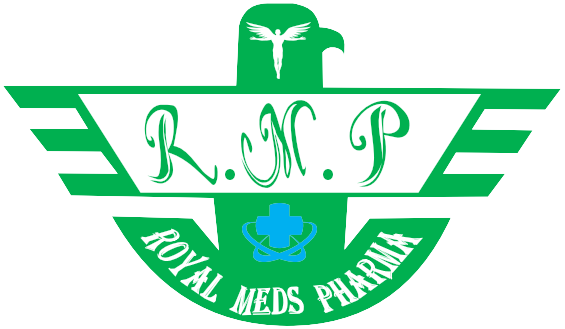
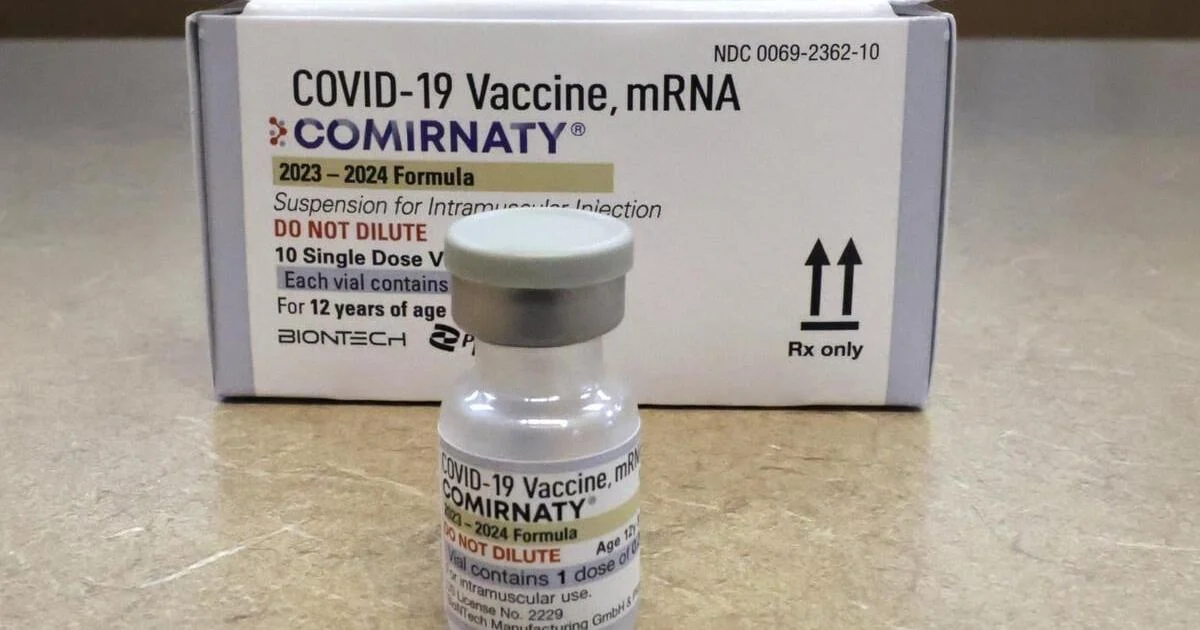
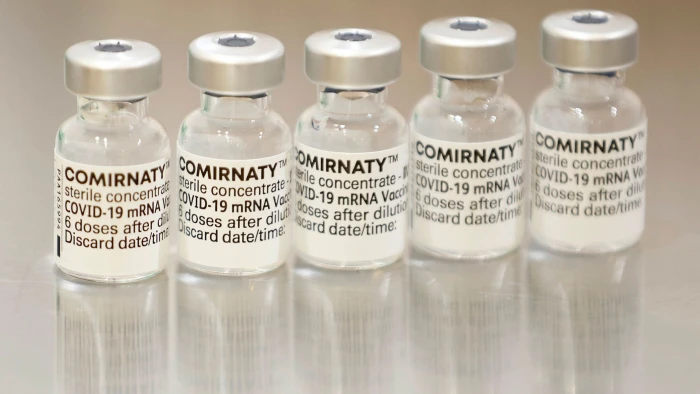
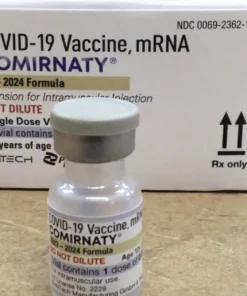
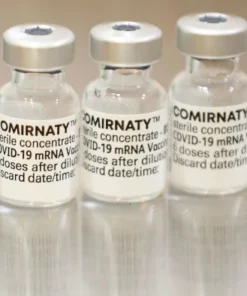
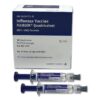
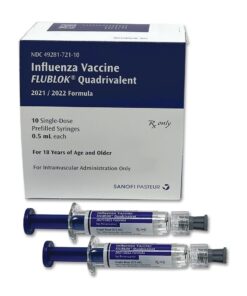
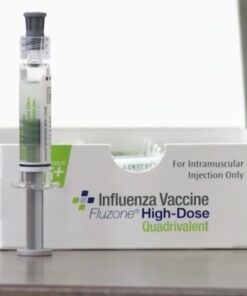
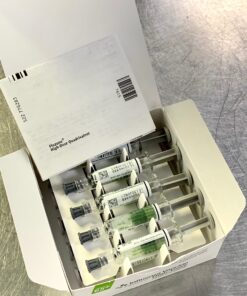
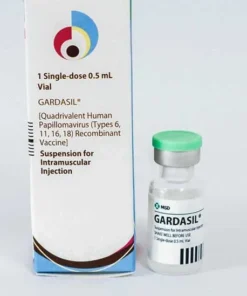
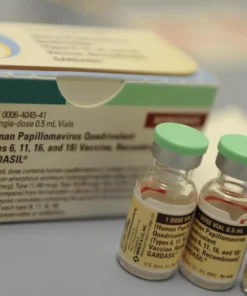
Reviews
There are no reviews yet.